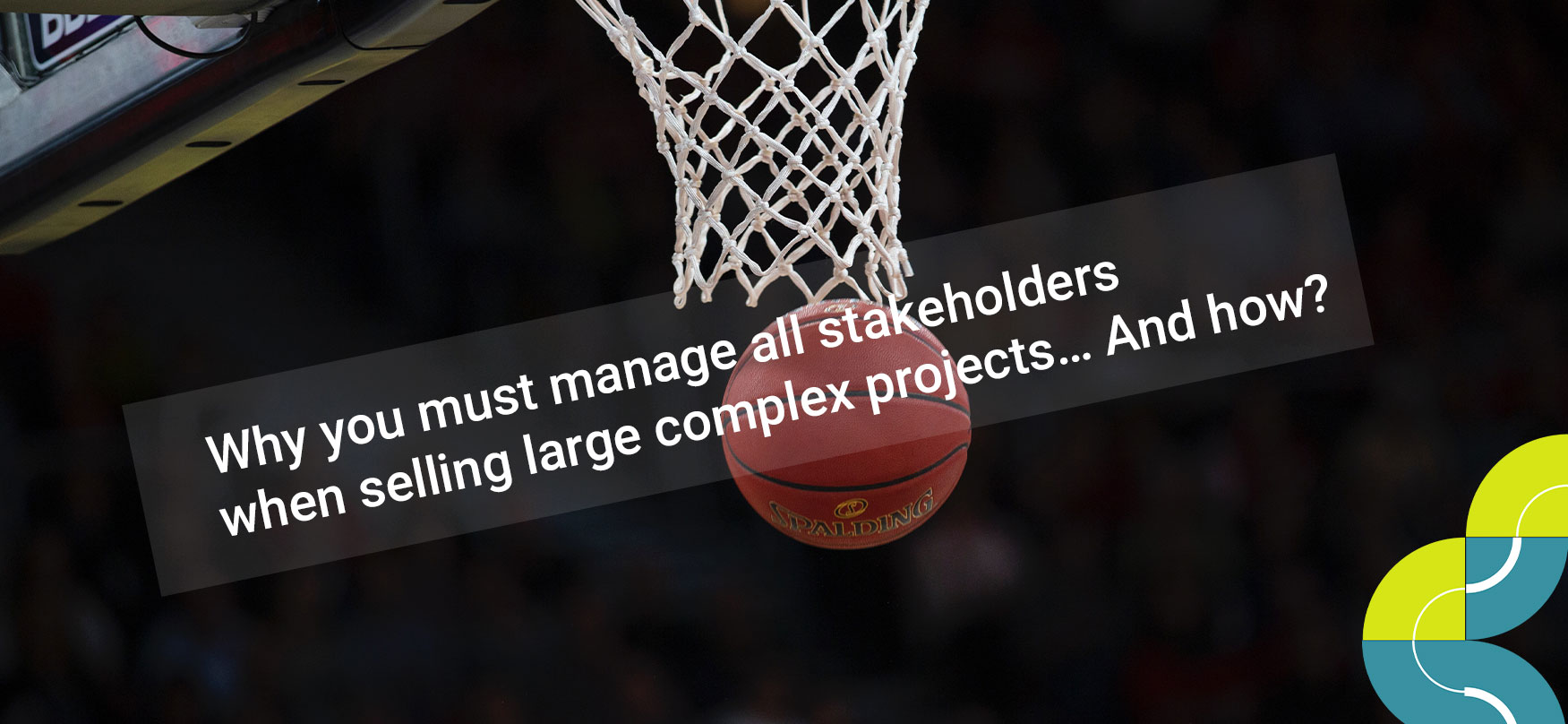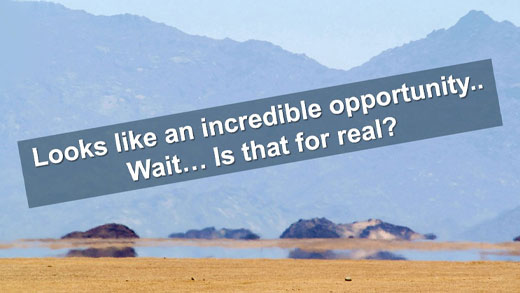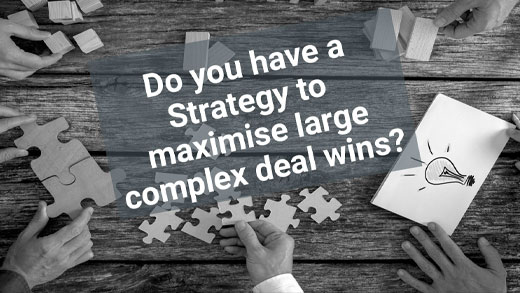Why you must manage all stakeholders when selling large complex projects… And how?
It’s Sanjay’s very first month in Project Sales. He’s excited, in his new role in Antares Thermal Solutions, offering heating, cooling, water and waste management solutions for large manufacturers. While Sanjay graduated in engineering, his final year project was on waste heat recovery alternatives. So, he is thrilled to have found a sales opportunity in the same area. He can’t wait to present the opportunity to his Sales Head.
Here are bullet points from Sanjay's presentation:
- Target prospect – Tsuyoi Glass, Maharashtra
- Company profile – 15-year-old Japanese Joint Venture manufacturing flat glass.
- Sector Outlook next 5 Years – Grow minimum 8% annually. Uptick in construction, automotive & solar energy.
- About Tsuyoi Glass - Manufactures glass for windows, glass doors, transparent walls, and windscreens in current day’s architectural and automotive applications. Expanding capacity in the next 6 months.
- Opportunity to sell: Antares Waste Heat Recovery Boiler (WHRB) system. Highlight cost and process efficiencies that it can deliver when the capacity expansion happens
- Reason to buy – Cost Savings: Energy expenses are more one fourth of the total production costs, of which over 80 percent is consumed by the furnace. Gases exhausted by the glass kiln pass through the superheater, evaporator, economizer, water heater and other heat exchange parts. Our waste heat recovery power system customized for a float glass kiln that harness these flue gases can improve waste heat utilisation by more than 70 percent.
Sanjay’s Challenge:
After listening to Sanjay, his Head of Sales said...
“A few more years in Project Sales and you will understand why these large complex opportunities don’t pan out quick and easy. This is not about convincing Engineering and Finance alone. Complex solutions are always sold to a group of stakeholders within the buying entity.
You are dealing with a 15-year-old company, with seniors heading key functions. Are you sure the Production / Engineering Head isn’t from the old school who may not want to rock the boat by changing already established production process?
What is the CFO’s likely stance? Of course, the financial returns will be attractive to him, but is he the type who is willing to incur additional spend on capex for securing cost savings? How’s the chemistry that Engineering and Finance enjoy with the CEO? Is he likely to go by their recommendations?
And, what are the chances that the board will approve additional capex right now in present conditions?
Don’t mean to spoil your enthusiasm Sanjay. But large complex Project Sales require a lot of effort from our side as well. So, we should size them up well before jumping into them”
Sanjay’s position:
Young ambitious Sanjay thinks his boss is unduly pessimistic. He feels they should go ahead with creating a proposal and take things as they come …
Whose side are you on?
Sanjay or his Head of Sales? What do you think, it would take, to convert this opportunity into an order?
Large Complex Project Sales are all about influencing multiple stakeholders
Large opportunities set in complex sale environments always involve dealing with ‘a Decision Making Unit - DMU’ that comprises multiple stakeholders and influencers. Individuals involved in a DMU have distinctive roles, with a different set of decision making powers, with varying attitudes towards the seller and the competition.. So,
- It is important to identify the key players involved, both formally and informally with the decision making process. Led by the Sales Manager prospecting the account, a team of functional specialists from the seller company will need to sit together and ‘map’ the ‘Decision Making Unit’ of the purchaser.
- The Sales Manager should then work on a differential approach to influence the stakeholders within the potential prospect. Such influencing may involve a cross-functional approach. This then defines what should be the seller’s contact strategy: whom should we meet, whom should we use to influence whom.
- The ‘Chess’ of aligning with key players on the Customer and Vendor sides provides the lever for making the solution strategy work. Aligning with key players is a part of being effective in winning large deals.
- And you must be prepared to expect the unexpected turns and twists that could derail progress towards winning the deal. This calls for meticulous planning
Detailed Planning can prevent sales efforts being derailed
In complex Project Sales, individual stakeholders, who seem so sweet and favourable in one-on-one meetings, often turn into such unreasonable antagonists or indifferent onlookers when you make a group-selling pitch. What can you do to prevent this from happening?
The answer is, plan and plan ahead… Analyse the participant profiles. Here’s a helpful checklist.
A Checklist to analyse stakeholder profiles
Ask yourself these questions:
| Who will take part? | Who could be influenced to participate? (Or stay away?) | What do these people think? | What do they know? | What do they expect? | What is their attitude? | What are their interests/ motivation? | Who is likely to be an ally? Opponent? Neutral or indifferent? | How can these people be led, influenced or guided? Frequently used methods of influencing include – Seating, audio visual design, screen-shared video and audio Customer review clips, facilitated breakout group discussions, questions, samples, references | Who should join you from your side?
Analyse the answers to these questions. That would give you an insight into the “role expectations” the meeting participants may have. Managing these expectations is critical to success in complex sales.
To summarise, here are the 3 strategies of effective stakeholder management, to succeed in large Complex Project Sales:
(1) Understanding the influencers and stakeholders involved in the decision making unit
(2) Anticipating and planning to mitigate likely road blocks
(3) Arming yourself with a checklist to analyse stakeholder profiles.
Want to get better at ‘qualifying’ large complex deals? To know more about the O2O Process, and how it can bring in greater rigor to your prospecting, by ‘qualifying the lead’ better, leave your contact details here. A Mercuri India Consultant will be happy to call you at your convenience to understand your needs better, and put together an O2O Solution for you and your Team. Let’s talk. Let’s make sales happen!
Happy Selling!









